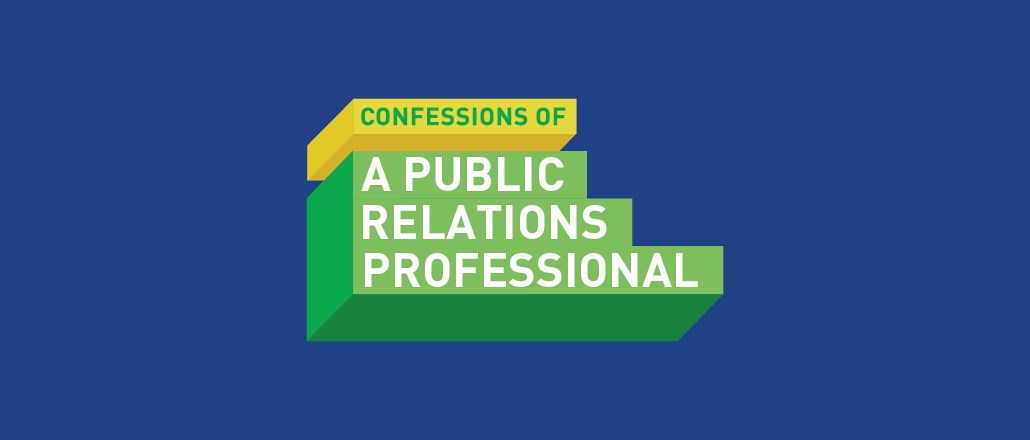Secure your place at the Digiday Media Buying Summit in Nashville, March 2-4
‘Clients don’t know the effort that goes into it’: Confessions of an agency PR pro

This article is part of our Confessions series, in which we trade anonymity for candor to get an unvarnished look at the people, processes and problems inside the industry. More from the series →
Clients want good press — but they want it to be effortless and they’d like it to be free. Enter the PR professional, who has to manage those often unrealistic expectations. In the latest installment of our anonymous Confessions, an agency PR pro vents about how clients don’t understand the work that goes into getting that press, and why media companies are the worst at being the subject of news coverage.
What’s hardest about being at an outside agency?
Knowing how much to update clients without being defensive. Your clients don’t know what you’re doing all day. There’s an inherent skepticism about any service provider. You only know the results; you don’t know the work that goes into it. Clients typically don’t understand that except in a rare moment of huge news, generating a successful story is more than just calling up a reporter and saying, ‘I got this huge story.’ It can seem like the successful effort took no time.
Is there a particular challenge to working with startups?
Startups tend to feel they need press to attract talent, investors, customers. But when you get a client that’s been around a decade but acts like everything it’s doing is so interesting because it has a desire for attention, that doesn’t work. It’s unnecessary expectations.
Where do social influencers fit in their plan?
The FTC guidelines around bloggers on social media are going to be very important for policing the integrity of quote-unquote opinions. Clients have to understand that the only way influencer marketing works is to pay the influencer and disclose it. The reaction is, ‘We don’t want to look like we paid to play. Let’s find people who want to write about us and let’s convince them to write about us out of the goodness of their hearts.’
Do clients still want to be in print?
Sure, because it feels like a bigger deal. It’s scarcity. If feels like you weren’t taken seriously if it wasn’t in print. But the client is less likely to look at the print unless you tell them.
What do you wish reporters understood that they don’t?
That saying yes is actually in their interest. Writing that story will give them unduplicated, interesting content while building up their relationship with the company that could pay dividends down the road. Reporters are so interested in competing against each other and they say ‘no’ to something that might be outside the box.
Do reporters still care about getting scoops when the news is 24/7?
It’d be wonderful if reporters didn’t care about scoops anymore because the [client] could get more bites of the apple. If you’re Facebook, you can do a blog post and the whole ecosystem will cover you. If you’re a wannabe Facebook and you have a new product, the only way you’re going to get coverage is by giving exclusives.
Why are media companies so bad about being the subject of news coverage?
It’s very hard to be the victim when you’re used to being the afflicter. Isn’t Bloomberg famous for having the largest newsroom and hating journalists? And Rupert Murdoch owns a media company and doesn’t hold press conferences. [Time Warner CEO Jeff] Bewkes subjects himself to tough questions. He understands transparency is essential to getting the deal done. News people can least tolerate the news coverage of themselves. What I tell them is, at the very least, if you participate, some of the space has to be used up with their side of story. They generally can’t handle it.
How do you deal with digital measurement issues?
It’s one of the big challenges. That’s why measuring the work effort is so important. You can measure your success in interest among reporters. Clients understand that getting a hit in a publication does not mean any fraction of that audience read the article. We still don’t have a metric to say, this is how many people saw a story. But when a publisher puts out the actual number of readers per story, that will be a very disappointing day for clients.
More in Marketing

WTF are tokens?
When someone sends a prompt or receives a response, the system breaks language into small segments. These fragments are tokens.

AI is changing how retailers select tech partners
The quick rise of artificial intelligence-powered tools has reshaped retailers’ process of selecting technology partners for anything from marketing to supply chain to merchandising.

YouTube’s upmarket TV push still runs on mid-funnel DNA
YouTube is balancing wanting to be premium TV, the short-form powerhouse and a creator economy engine all at once.





